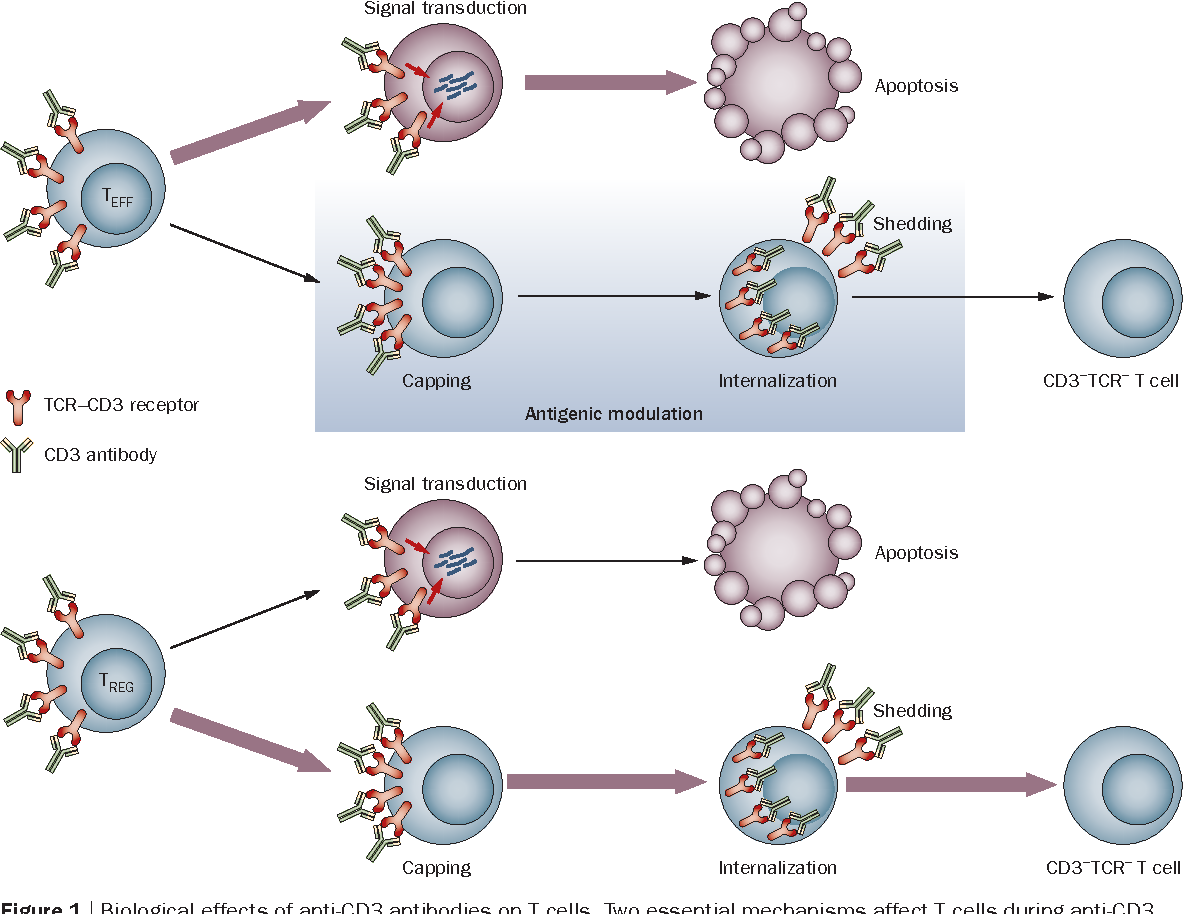what antibodies are present in type 1 diabetes Mellitus immune cd3 antibodies
Type 1 diabetes mellitus is a chronic disease that affects millions of people worldwide. It is an autoimmune disorder where the body’s immune system attacks and destroys the insulin-producing cells in the pancreas. Insulin is a hormone that helps the body to use glucose for energy. Without insulin, glucose accumulates in the blood, resulting in high blood sugar levels. Over time, high blood sugar levels can lead to serious complications such as neuropathy, retinopathy, nephropathy, and cardiovascular disease. Researchers have been exploring various approaches to treat type 1 diabetes, and one promising approach is immune therapy. Immune therapy is a treatment that modifies or enhances the immune system to target and destroy the autoimmune cells causing the disease. One type of immune therapy that has been tested in clinical trials is the use of anti-CD3 monoclonal antibodies. Anti-CD3 monoclonal antibodies are a type of protein that bind to and destroy T cells, a type of immune cell that plays a central role in the development of autoimmune diseases. In a clinical trial conducted in 2019, the anti-CD3 monoclonal antibody teplizumab showed promising results in slowing down the progression of type 1 diabetes. The trial enrolled 76 participants, aged 8 to 30, who were at high risk of developing type 1 diabetes. The participants were randomly assigned to receive either teplizumab or a placebo. The trial found that teplizumab delayed the diagnosis of type 1 diabetes by a median of two years compared to the placebo. Moreover, at the end of the study, 72% of the participants who received teplizumab did not develop clinical type 1 diabetes, compared to only 43% in the placebo group. While this is certainly encouraging news, more research is needed to determine the long-term effects of teplizumab and to optimize the dosage and duration of treatment. In addition, it is important to note that teplizumab is not a cure for type 1 diabetes, but rather a treatment that can slow down the progression of the disease. Other types of immune therapy being explored for the treatment of type 1 diabetes include the use of regulatory T cells, the use of vaccines to induce immune tolerance, and the use of stem cell transplantation. These approaches hold promise but are still in the early stages of development and testing. In conclusion, immune therapy is a promising approach to treat type 1 diabetes by modifying the immune system to target and destroy the autoimmune cells causing the disease. While anti-CD3 monoclonal antibodies like teplizumab have shown promising results in clinical trials, more research is needed to optimize the treatment and determine its long-term effects. It is also important to remember that no treatment for type 1 diabetes is a cure, but rather a way to manage the disease and its symptoms. We can only hope that further research advances our understanding and treatments of type 1 diabetes.
If you are looking for Type 1 Diabetes : anti-CD3 monoclonal antibody (teplizumab) slow the you’ve visit to the right place. We have 5 Images about Type 1 Diabetes : anti-CD3 monoclonal antibody (teplizumab) slow the like Type 1 Diabetes : anti-CD3 monoclonal antibody (teplizumab) slow the, To B or Not to B: (Anti)bodies of Evidence on the Crime Scene of Type 1 and also Figure 1 from Immune therapy for type 1 diabetes mellitus—what is. Here you go:
Type 1 Diabetes : Anti-CD3 Monoclonal Antibody (teplizumab) Slow The
 debuglies.comdiabetes type disease antibody progression monoclonal treatment risk cd3 slow anti high debuglies individuals slowed affecting clinical effectively immune according
debuglies.comdiabetes type disease antibody progression monoclonal treatment risk cd3 slow anti high debuglies individuals slowed affecting clinical effectively immune according
To B Or Not To B: (Anti)bodies Of Evidence On The Crime Scene Of Type 1
 diabetes.diabetesjournals.orgevidence bodies diabetesjournals
diabetes.diabetesjournals.orgevidence bodies diabetesjournals
Diabetes Mellitus : Causes, Symptoms And Prevention
 conceptophile.blogspot.comdiabete mellitus langerhans islets infanto juvenil insulina azione tipi enfermedad autoimmune glucose type1 levels genetics medlineplus
conceptophile.blogspot.comdiabete mellitus langerhans islets infanto juvenil insulina azione tipi enfermedad autoimmune glucose type1 levels genetics medlineplus
Figure 1 From Immune Therapy For Type 1 Diabetes Mellitus—what Is
 www.semanticscholar.orgmellitus immune cd3 antibodies
www.semanticscholar.orgmellitus immune cd3 antibodies
Immune Therapy For Type 1 Diabetes Mellitus—what Is Unique About Anti
 www.semanticscholar.orgTo b or not to b: (anti)bodies of evidence on the crime scene of type 1. Type 1 diabetes : anti-cd3 monoclonal antibody (teplizumab) slow the. Mellitus immune cd3 antibodies
www.semanticscholar.orgTo b or not to b: (anti)bodies of evidence on the crime scene of type 1. Type 1 diabetes : anti-cd3 monoclonal antibody (teplizumab) slow the. Mellitus immune cd3 antibodies